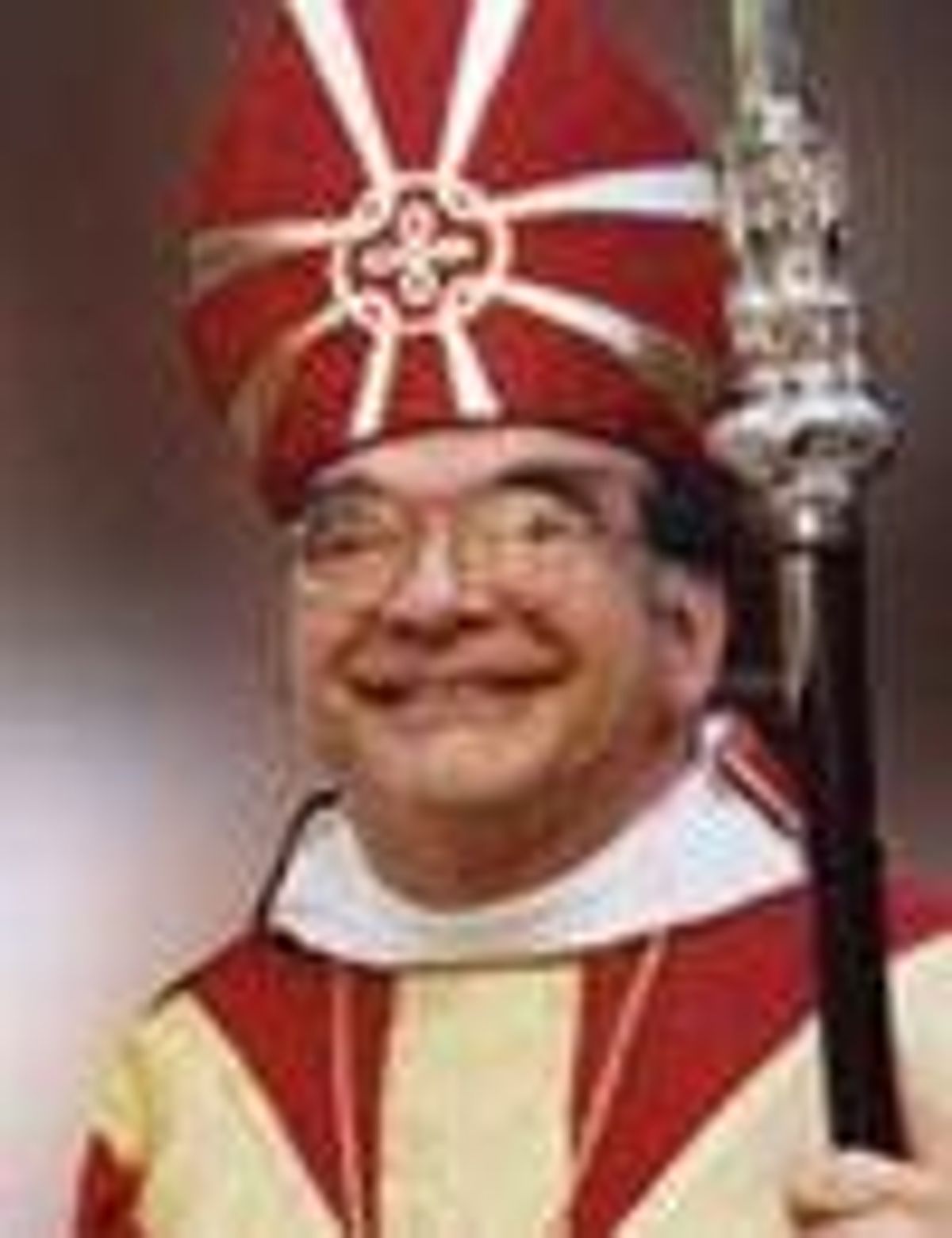A leading
Episcopal conservative Fridayannounced plans for a
partnership that aims to create an alternative to the
liberal-leaning Episcopal Church.
Bishop Robert
Duncan of Pittsburgh, whose diocese is considering breaking
away from the national denomination, said the group will be
called the Common Cause Partnership.
The founders are
a mix of groups with varying ties to the Episcopal
Church and the world Anglican Communion. Among the members
will be Episcopal dioceses and parishes that have
broken away or plan to split from the national church,
congregations that have never been part of the
Episcopal Church, and fellowships that are considered
schismatic by the Anglican Communion.
Duncan said that
forming a separate North American church structure for
conservatives is ''necessary because of the drift of the
church in the West.''
''We're in a time
of reformation,'' Duncan said.
The partnership
will include the Convocation of Anglicans in North
America, a network of Episcopal parishes that have split
from the U.S. denomination and have aligned with
Anglican archbishop Peter Akinola of Nigeria, an
outspoken critic of Episcopal acceptance of gay
relationships.
The Episcopal
Church, the Anglican body in the United States, caused an
uproar in the worldwide Anglican family in 2003 by
consecrating the first openly gay Episcopal bishop, V.
Gene Robinson of New Hampshire. The 77 million-member
Anglican Communion is a fellowship of churches that trace
their roots to the Church of England.
Ever since
Robinson's election, theological conservatives in the United
States have been trying to stay together so they can create
an alternative Anglican province in the United States.
But they have often moved in many different
directions, including individuals leaving on their own
to join other denominations.
In a sign of
these differences, some traditionalist Episcopal groups were
not part of the founding meeting, held this week in
Pittsburgh. Duncan said he hopes they will eventually
join.
According to the
Episcopal Church, about 66 of its more than 7,000
parishes have either left or voted to leave the national
church, or have lost a significant number of members
and clergy.
Duncan said that
51 Anglican bishops, saying they represent 600
congregations, attended the four-day meeting here where the
partnership was planned.
Anglican
conservatives and liberals are deeply conflicted over how
Scripture should be interpreted on a wide range of issues,
including salvation, truth and homosexuality.
Anglican leaders
had set a Sunday deadline for the Episcopal Church to
pledge unequivocally not to consecrate another gay bishop or
approve an official prayer service for same-sex
couples.
On Tuesday, U.S.
bishops affirmed they would ''exercise restraint'' by
not consenting to a candidate for bishop ''whose manner of
life presents a challenge'' to Anglicans and the
church.
The promise,
however, is not an outright ban and has been rejected as
inadequate by some conservatives. The Episcopal leaders also
promised they would not approve official prayers to
bless same-gender couples.
The Reverend Jan
Nunley, a spokeswoman for the Episcopal Church, noted
that conservatives have tried before to unite around their
opposition to decisions by the national church. But
many have remained low-profile splinter groups.
Members of the
Common Cause Partnership acknowledge they must work out
theological differences over whether they should ordain
women, and over spiritual and moral standards for
ordained and lay leaders, among other issues.
The Common Cause
bishops plan to meet every six months, provided their
individual territories vote to join the partnership. The
partnership plans to hold its first constitutional
convention late next year and seek recognition from
the Anglican world spiritual leader, Archbishop of
Canterbury Rowan Williams. (Joe Mandak, AP)













































































